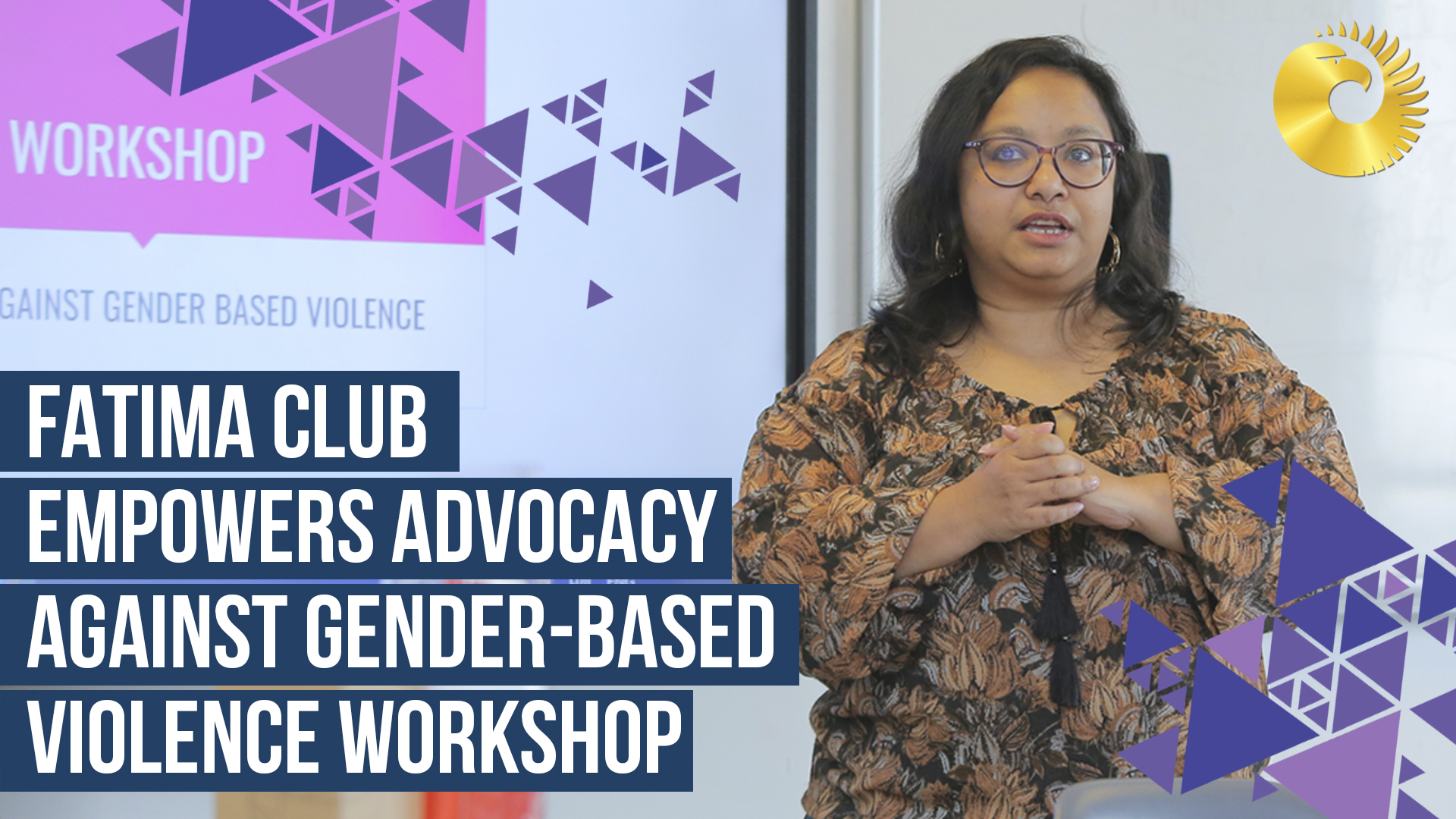Fatima Club Empowers Advocacy Against Gender-Based Violence Workshop
March 5, 2024

In a bid to address the pressing issue of gender-based violence and empower advocacy efforts within their community, the Fatima Club recently organized a transformative workshop. The event served as a platform for meaningful dialogue, education, and empowerment, with Professor Sharmistha Ghosh leading the discussion.
The workshop, held at the heart of the local community, brought together members of the Fatima Club and other interested individuals passionate about combating gender-based violence. The club's initiative aimed to raise awareness and equip attendees with the knowledge and tools necessary to become effective advocates for change.
Professor Sharmistha Ghosh, a faculty member at BRAC University in Dhaka, Bangladesh, served as the keynote speaker for the workshop. She is sharing her knowledge at the AUCA Psychology Department as part of the OSUN Faculty Mobility Program. Sharmistha’s interest lies in exploring gender-based violence through the lenses of sociology, development studies, and psychology. With her wealth of experience and expertise, Professor Ghosh illuminated the complexities of gender-based violence, its underlying causes, and the various forms it takes in society. She underscored the urgent need for collective action to combat this pervasive issue through compelling anecdotes, research findings, and real-world examples.
One of the workshop's highlights was the interactive sessions facilitated by Professor Ghosh, where participants engaged in thought-provoking discussions and practical exercises. Attendees were encouraged to explore their roles in addressing gender-based violence, identify barriers to progress, and brainstorm innovative solutions.
The workshop also provided attendees with valuable resources and strategies for effective advocacy. Moreover, the participants learned how to write a project proposal, worked together to create new ideas and brainstorms, and studied the techniques and techniques of writing. Besides, they presented their draft proposals and received prizes. From community organizing and grassroots initiatives to legislative advocacy and support services, participants gained insights into the diverse avenues through which they could contribute to the fight against gender-based violence.
In conclusion, the workshop led by the Fatima Club, with Professor Sharmistha Ghosh at the helm, was a testament to the power of grassroots activism and community engagement in addressing complex social issues. The event paved the way for meaningful change and catalyzed ongoing advocacy against gender-based violence by fostering dialogue, education, and empowerment.
